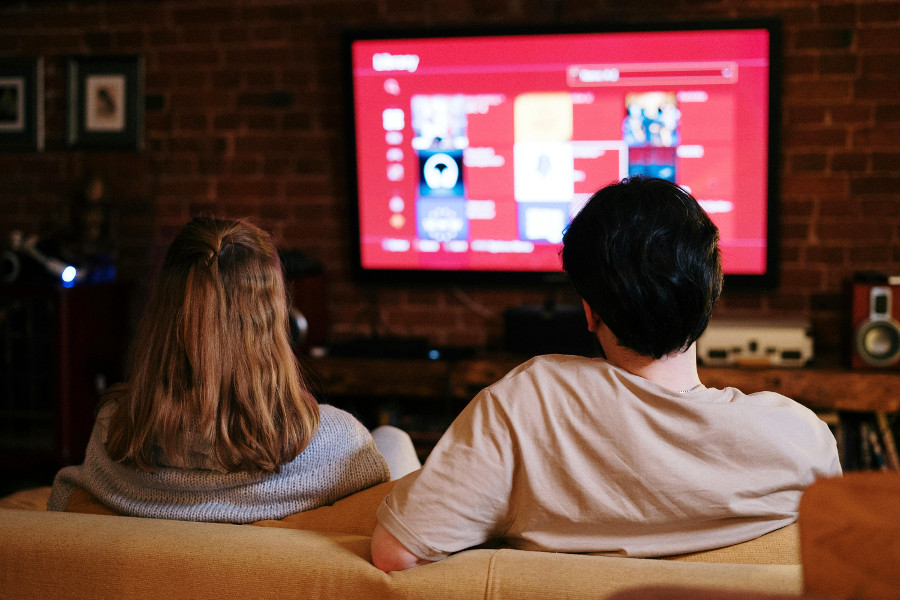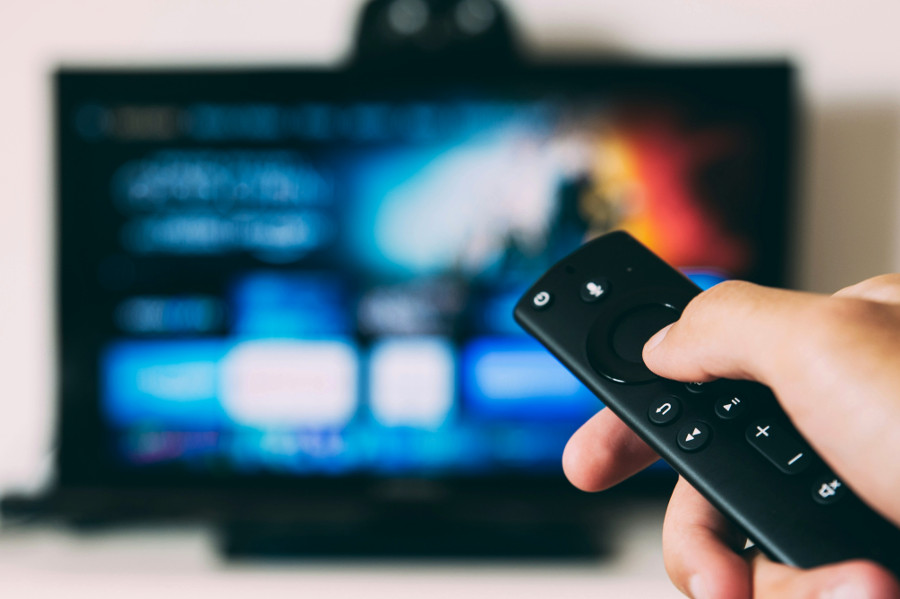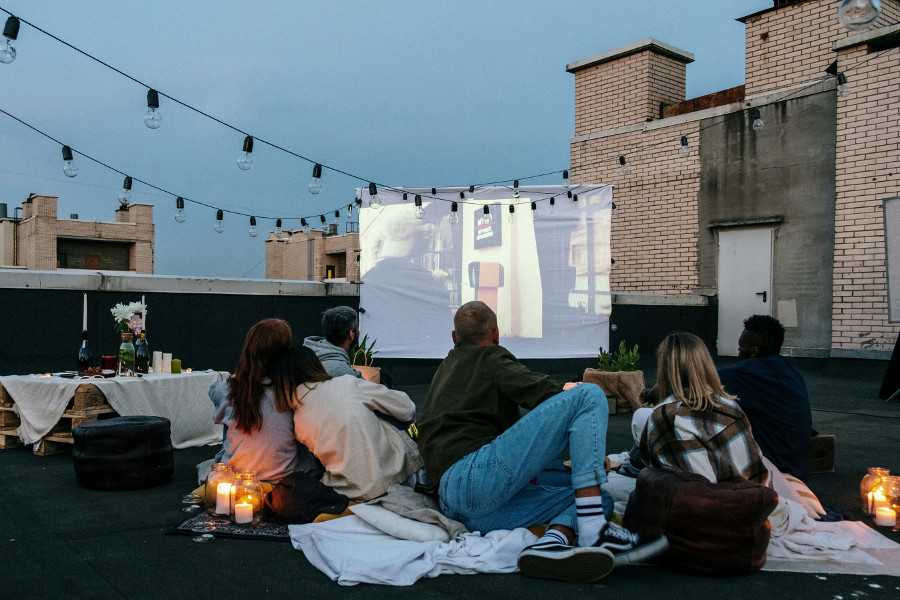How to Stop Wasting Your Time with Binge-Watching and Start Consuming Media More Intentionally
We’ve all fallen into the binge-watching trap - one episode turns into an entire season before we even realize it. While it may feel like harmless fun, binge-watching can have a serious impact on your mental health. But there’s good news! You don’t have to give up your favorite shows; you just need to be more intentional about how, when, and why you watch. Keep reading to discover simple, mindful strategies that can help you enjoy media without it taking over your life.

Binge-watching has become a cultural norm. We’ve all done it - settling in for one episode of a show and then suddenly it’s 4 a.m., and we’ve watched an entire season. The allure is undeniable, especially when streaming platforms make it so easy. But while it might feel good in the moment, binge-watching is far from a healthy habit. It’s a quick way to lose track of time, and unfortunately, it doesn’t just eat up your day. It can have a lasting impact on your mental health. But the good news is, there’s a way to break the cycle. It’s all about being more intentional with how we consume media.
We live in a world where screens are always within arm’s reach. From smartphones to laptops to TVs, we’re constantly plugged in. It’s no surprise that we’re spending more time than ever watching shows or scrolling through content. And yet, while technology has certainly brought about convenience and entertainment, it’s also come with a darker side. The constant stream of media, the endless episodes, and the “one more show” mentality can make us feel more isolated, overwhelmed, and even stressed. Mental health issues are on the rise, and binge-watching may be part of the problem. So, how can we reclaim our peace of mind in this digital age?
There are plenty of techniques that aim to help, from meditation and mindfulness to creative hobbies and quality social time. But one simple shift can make a huge difference: consume media intentionally. It’s about choosing what, when, and how we watch. Just as we’ve learned to be more mindful of what we eat and how we exercise, we can apply that same awareness to our screen time. This is the key to avoiding the trap of binge-watching and boosting your mental well-being.
Why Binge-Watching Feels So Good (and Why It’s Bad for You)
Binge-watching is built on a foundation of instant gratification. We’re wired to enjoy it. With every episode, we get another hit of entertainment, and before we know it, hours have gone by. But what’s happening in our brains during this process? The short answer: not much.
Watching TV for hours on end is a passive activity. It’s easy to zone out and tune out the real world. The problem is, when we spend that much time in front of a screen, our brains become less engaged. This can lead to a decrease in focus, cognitive overload, and even a sense of emotional numbness. In the short term, it might feel like a welcome escape, but long-term, it can leave us feeling drained, unproductive, and emotionally flat.
The effects aren’t just cognitive. Social isolation can creep in too. We spend more time with our screens than with the people around us, and that disconnect can contribute to feelings of loneliness and anxiety. And let’s not forget about sleep. The more time we spend binge-watching, especially late into the night, the more our sleep patterns suffer. This can result in fatigue, irritability, and an overall sense of being “off,” which only makes mental health problems worse.

Shifting to More Intentional Media Consumption
Now, let’s talk about what we can do. The good news is, we don’t have to give up media altogether. Media, in all its forms, can be a great source of entertainment, education, and even relaxation. The trick is to engage with it more thoughtfully.
Intentional media consumption isn’t about eliminating your favorite shows or movies; it’s about being more mindful of when and how you watch them. It’s the same concept as eating healthily. You don’t need to avoid pizza forever, but if you eat it every day, it’s going to affect your health. Likewise, if you’re spending all your free time watching TV, it can take a toll on your mental health.
Mindful Watching: Start by setting a clear intention before you press play. What do you want to get out of this session? Is it purely for entertainment, or are you hoping to learn something new? Having a clear purpose for your media consumption can help you engage more meaningfully with what you’re watching.
Make it into an event: Are you in the mood for watching a movie? Phone up your friends and plan an evening out at the cinema together. Afterwards head for a pub and discuss the film with each other. Another option is to seek out an open-air screening, especially in the summer in a nearby park. Gather your friends and have a picnic on sitting on the grass while watching the open-air screen for the movie. These methods turn film watching into an enjoyable social event.

Watch TV-show episodes the old-fashioned way:: Do you remember how you had to wait a whole week to catch up with the new episode of your favorite series? And what about those times when to show went on a 2-month break with a big cliffhanger leaving you on tenterhoks? You went to online forums and fansites speculating about the storylines and looking for the tiniest bit of spoilers in every corner of the internet. You were part of a (fan-)community. With streaming services, that exciting period of anticipation has mostly vanished. Watching episodes on a weekly basis is a much more conscious activity binging through 6 episodes in one day or night. If you have the chance get back to the old-fashioned way of watching a TV-series: follow the episodes week after week and take part in the online discussions.
Quality over Quantity: Instead of binge-watching entire seasons, why not savor an episode or two? It’s like enjoying a delicious meal slowly instead of stuffing yourself with fast food. When you give yourself time to reflect on what you’re watching, you’re more likely to remember the content and feel more connected to it.
Balance with Other Activities: Media shouldn’t be your entire world. After your viewing session, take some time for other enriching activities. Go for a walk, call a friend, or engage in a creative hobby. These activities balance the effects of screen time and help you stay connected to the world around you.
Take Breaks: It’s important to step away from the screen now and then. Stand up, stretch, and give your brain a breather. This helps prevent mental fatigue and gives you the chance to reflect on what you’re watching, keeping you grounded in the present moment.
The Power of a Digital Detox
In addition to intentional media consumption, you might want to consider a more extreme but incredibly effective option: a digital detox. (Read our article about how to go on a 30-day digital detox, here.) Think of it as hitting the reset button for your mind. Taking a day or weekend off from all screens allows you to reconnect with yourself and the world outside of your digital bubble. It’s a chance to breathe, clear your mind, and reset your mental state. Even just a few hours away from your phone or TV can help you regain a sense of peace and clarity.
Popular digital detox apps / tools:
- Forest
- StayFree
- Minimalist Phone
- Opal
- Flipd (also a productivity app)
- Digital Detox Tools (website)
Why It’s Worth the Effort
So why go through all this effort? Because intentional media consumption can be transformative for your mental health. It allows you to stay present in your life, be more mindful of your emotional responses, and spend time on activities that genuinely nurture your well-being. It also helps you reconnect with the people around you, replacing passive screen time with meaningful social interactions.
In a world that’s increasingly saturated with technology, it’s easy to get lost in the noise. But by choosing to be more intentional with how we consume media, we take back control. Media can still be a source of joy and relaxation; it just needs to be part of a balanced life.
Conclusion
Binge-watching is a habit many of us have fallen into, but it doesn’t have to be our default mode of entertainment. By shifting to more intentional media consumption, we can reclaim our time, energy, and mental health. It’s not about cutting out media completely - it’s about becoming more aware of how, when, and why we engage with it. With a little mindfulness, we can enjoy our favorite shows without letting them take over our lives.



